THE GAME (1997)
After a wealthy banker is given an opportunity to participate in a mysterious game, his life is turned upside down when he becomes unable to distinguish between the game and reality.
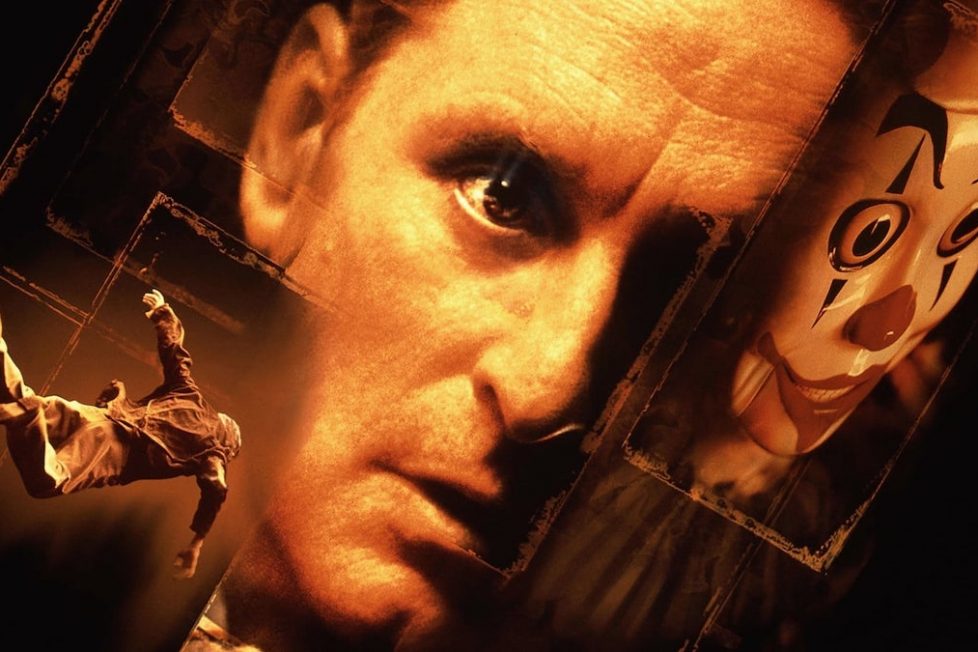
After a wealthy banker is given an opportunity to participate in a mysterious game, his life is turned upside down when he becomes unable to distinguish between the game and reality.


David Fincher’s highly anticipated follow-up to Se7en (1995) was a commercial disappointment. Costing $70M to produce, mystery thriller The Game only grossed $109M at the global box office, not including the marketing costs. A similar fate awaited Fincher’s Fight Club (1999) two years later, but while that film became a cult classic thanks to the boom in DVD sales, The Game never got a second chance. What’s strange is that contemporaneous reviews were positive and there’s plenty to recommend about The Game over two decades later, as a white-collar down-to-earth take on Total Recall (1990).
Nicholas Van Orton (Michael Douglas) is a rich investment banker for whom money’s no object. However, deep into middle-age and estranged from his ex-wife and younger brother Conrad (Sean Penn), he’s privately sad and bored in ways he can’t even admit to himself. And no amount of money can change that. Then, for his 48th birthday, Conrad surprises him with a gift voucher for a “game” run by Consumer Recreation Services (CRS), which intrigues Nicholas because of his brother’s promise it’ll change his life.
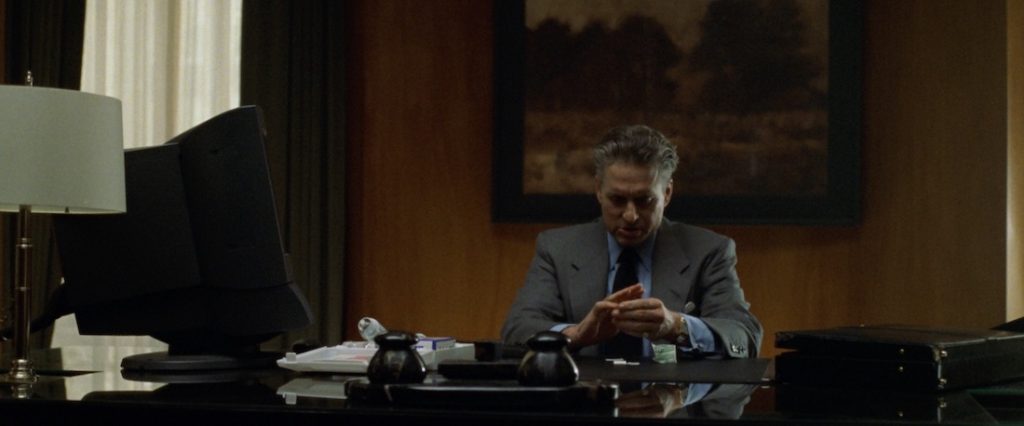
Curiosity piqued despite his blasé attitude around Conrad, Nicholas undergoes the long CRS application process (which involves a psychological and physical examination) and allows himself to become secretly excited by the mystery over what the Game involves. But once the game seemingly begins, Nicholas’ orderly and privileged life is turned upside-down as reality and fiction blur thanks to convincing real-world scenarios that push Nicholas down a rabbit hole of misery and mystery. And after befriending a waitress called Christine (Deborah Kara Unger), who gets caught up in events after a mishap in a restaurant, Nicholas starts to suspect that CRS is actually a criminal enterprise created to fleece rich players like himself, so he resolves to fight back as his life unravels.
The Game began as a spec screenplay by John Brancato and Michael Ferris (The Net) and remains the highlight of their ignominious Hollywood careers. They went on to write Terminator 3: Rise of the Machines (2003), Catwoman (2004), Terminator Salvation (2009), and Surrogates (2009), before parting ways in 2015. The Game looks to have been inspired by a viewing of Total Recall, seeing as both stories concern a man drawn into a corporate conspiracy, unsure of what’s real and what’s not.
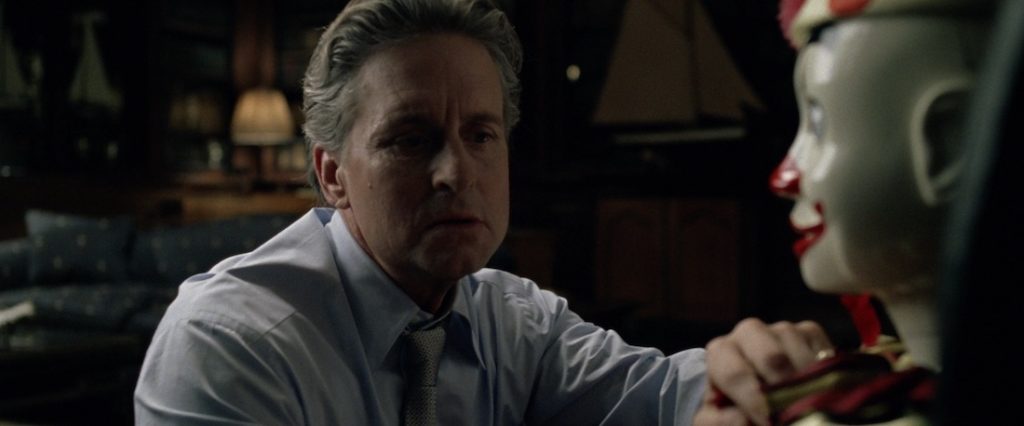
However, while Paul Verhoeven’s movie was adapting a classic sci-fi story by Philip K. Dick and prioritised action and some world-building, The Game is more analogue and contemporary in nature. That actually makes it more interesting in some ways. Everything in Total Recall took place in a cartoonish future where audiences suspected what’s happening could be an implanted memory, but Douglas’ character is navigating our world in the then-present. America in 1997 is a place we understand, which makes us connect a little more to what’s going on and try to rationalise what a company like CRS would be capable of achieving. The only thing utilising a high-tech notion (for the late-’90s anyway) is a scene with a micro-camera hidden inside the eye of a clown doll. One can imagine a remake of The Game being driven more by technology, but Fincher keeps things on a level that sometimes reminded me of The Truman Show (1998), only with paid actors and bribed strangers faking events in the real world.
Brancato and Ferris’ script was apparently overhauled by Andrew Kevin Walker (Se7en) and Larry Gross (48 Hrs.), who made Nicholas more cynical and darkened the story’s tone. Despite their allegedly broad changes, Brancato and Ferris retained credit as the only writers, so the Writers’ Guild of America clearly through a lot of their original draft made it to screen. It just strikes me as odd that everything they wrote since was much inferior, so I can easily believe The Game was script-doctored extensively.
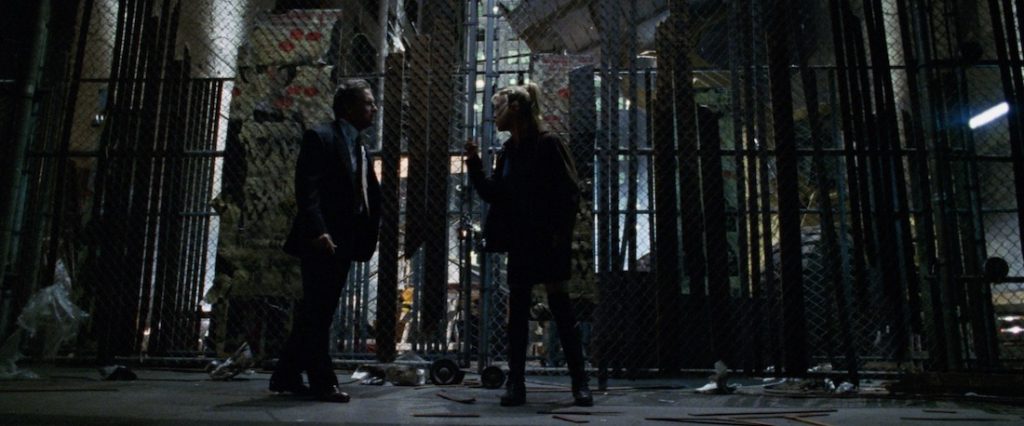
It was a masterstroke to cast Michael Douglas as Nicholas Van Orton, partly because the character evokes Gordon Gecko from Wall Street (1987) despite being a more sympathetic presence. He’s kind to his housekeeper and is more bored and world-weary than a nasty bigshot deserving of what comes his way. Douglas has always been good at playing men with unsavoury attributes, or characters audiences feel uncomfortable watching but can still accept as the closest thing to a ‘hero’. Nicholas was supposed to be portrayed by Brad Pitt before Se7en became the priority for Fincher, and Jodie Foster even got close to playing Christine (or a gender-swapped Conrad) before leaving the project. The actress later filed a $54.5M lawsuit against distributor PolyGram for orally agreeing her casting and then reneging on it. She would eventually work with Fincher on Panic Room (2002), so perhaps he felt bad about the whole situation.
Deborah Kara Unger ultimately ended up playing Christine after impressing Fincher in a meeting, which she only got after sending an audition tape Douglas thought was a joke because she reenacted a sex scene from David Cronenberg’s Crash (1996)! Finally, after Jeff Bridges dropped out of the running to play Conrad, Sean Penn was instead hired after coming to prominence with an Academy Award nomination for his performance in Dead Man Walking (1995).
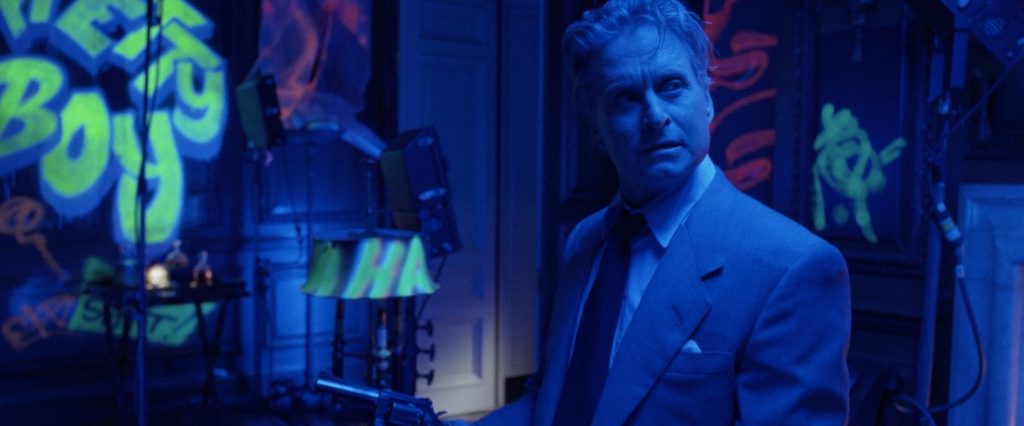
What works about The Game is how beautifully simple it is, despite the twists and turns. There are a few leading characters, as we’re mostly following Nicholas (with periods when Christine tags along), and the movie successfully moves through its three acts without fumbling the ball. The opening is satisfyingly strange and hooks you with expectations of what the Game is going to entail, and the second act features ways in which CRS mess with Nicholas—ranging from fun (faking an ambulance emergency) to near-fatal (waking up penniless in Mexico). The way the narrative plays with the audience is always entertaining.
It has been so many years since I saw The Game that I soon became aware I’d completely misremembered the basic concept, too. I was convinced Nicholas isn’t aware he’s participating in an interactive Game but, in fact, the opposite is true. He’s fully aware of what he’s signed up for but starts to wonder if there’s an ulterior motive for what’s going on and that he’s the latest victim of an elaborate con. The ending of The Game seems to be a little contentious for some people, but I love seeing how things resolve. David Fincher is on record as saying he perhaps shouldn’t have made The Game because he didn’t figure out the third act before shooting began, but I was just happy the explanation made sense and nothing was kept ambiguous.
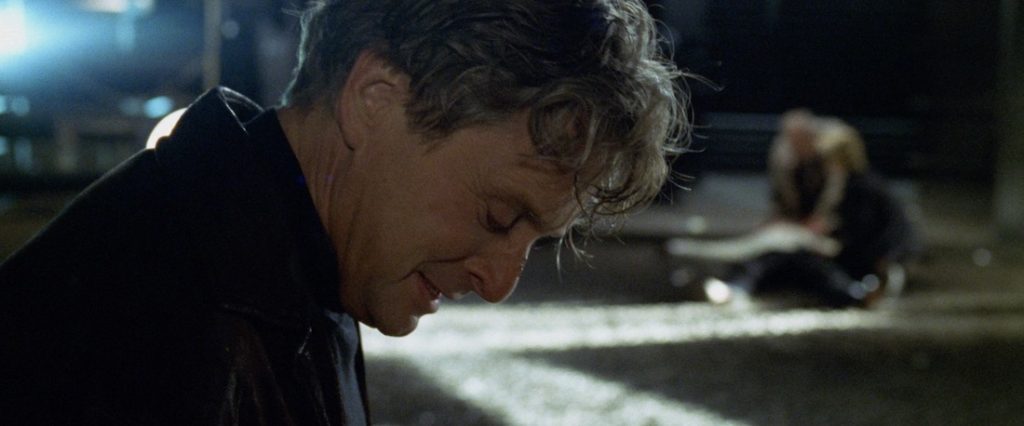
There’s certainly a bit of Alfred Hitchcock’s DNA in The Game. One can imagine the Master of Suspense being drawn to this story as a modern-day approach to a story like North by Northwest (1959), with another beleaguered man trapped in a situation he can’t control. There’s not a lot of emotional stakes to this film, however, as Nicholas just isn’t the kind of character it’s easy to find sympathy for because he’s a multi-millionaire who knew what he was getting into. Fincher has said he thinks of The Game as being a postmodern version of Charles Dickens’ A Christmas Carol, but the arc of Nicholas finding his humanity and soul isn’t as strong as it could have been if that was the intention. He should have started off being a lot nastier if Fincher wanted audiences to witness a Scrooge-like redemption.
Overall, The Game is lower-tier Fincher because it doesn’t feel as exciting and progressive as many of his other films, but I prefer this over his later Panic Room and The Curious Case of Benjamin Button (2008) because of its well-executed twists.
USA | 1997 |129 MINUTES | 2.39:1 | COLOUR | ENGLISH

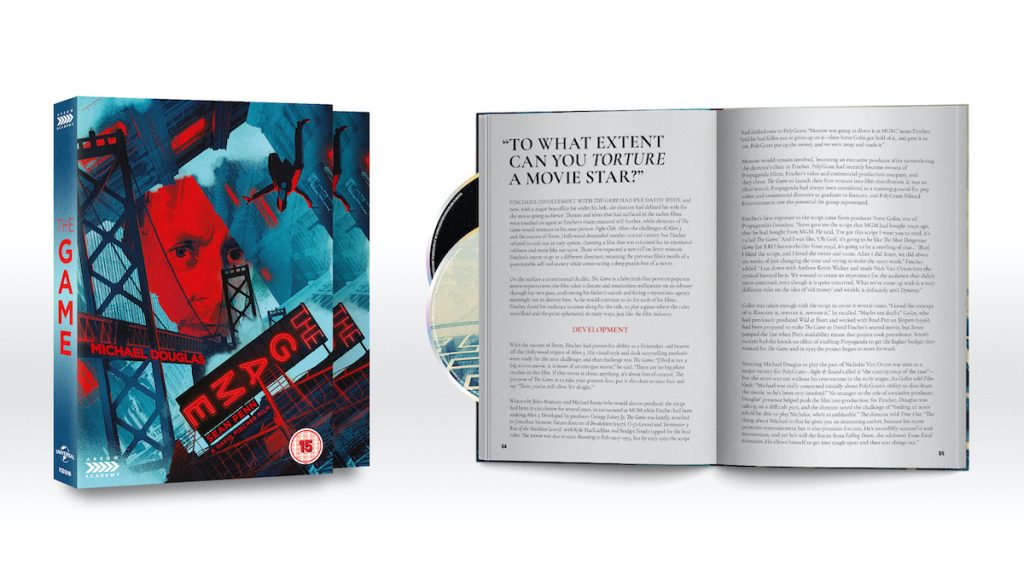
Arrow Academy’s release of The Game comes in a mouthwatering Limited Edition package, but it’s fundamentally the 2012 Criterion Collection release in new clothing. There are a few bonuses that make it superior to the Criterion Blu-ray (the booklet and packaging alone), but The Game sadly hasn’t been revisited in terms of audio and visual presentation.
Approved by Fincher and cinematographer Harris Savides, this 1080p Blu-ray does an excellent job at resolving an often gloomy picture full of shadows. Colours are saturated and blacks are strong, but these days I’m spoiled by seeing 4K and HDR discs on the next-gen format, so I know everything here could be better and less murky in places.
One difference between the Criterion disc and Arrow Academy’s new release is with the sound options. Arrow retains the DTS-HD 5.1 mix for The Game but there’s no sign of the DTS-HD 5.1 mix included in the Criterion release (ported over from their original LaserDisc) where the sound had been specially mixed for home theatres. Maybe this was intentional and things have changed since 2012 in people’s homes, so Arrow decided there was no point including both versions today? Whatever the reason, the primary DTS-HD 5.1 mix engrosses you in the film’s moodiness (helped by Howard Shore’s unsettling piano-based score), with lots of aural effects, strong bass, and punchy dynamic range. It might have been nice to one-up Criterion with a Dolby Atmos or DTS:X soundscape, however.
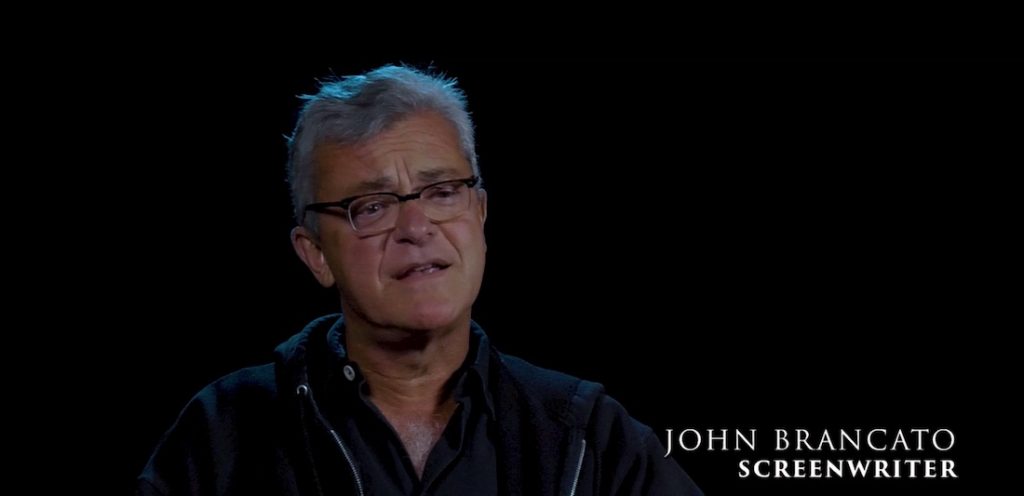
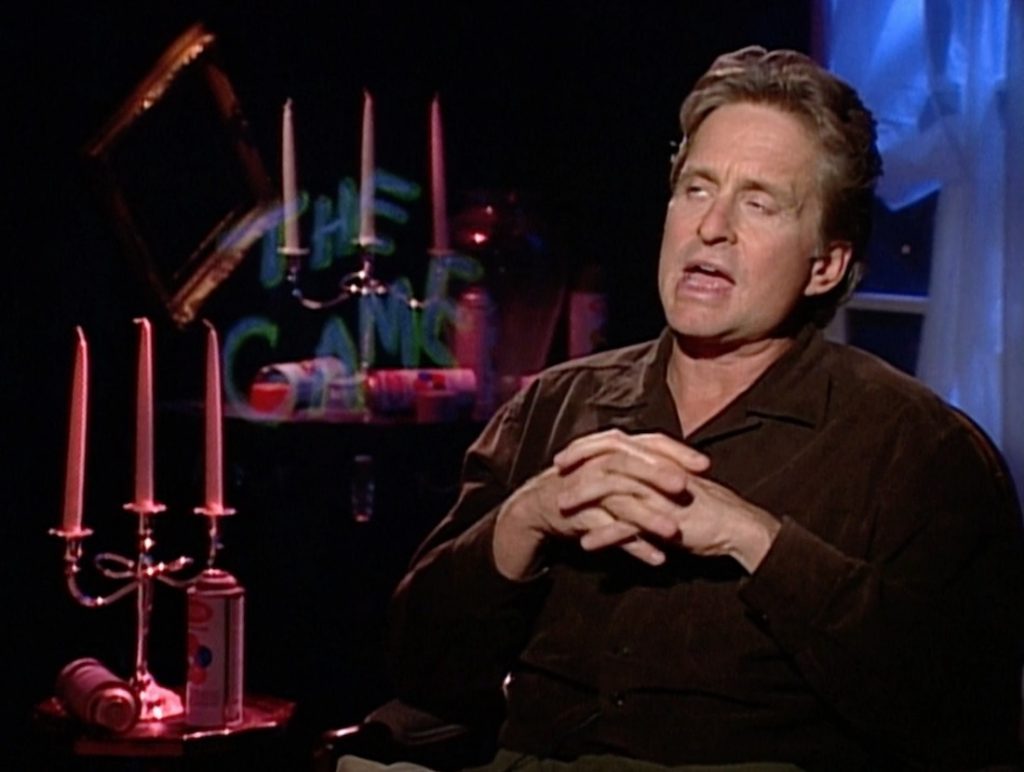
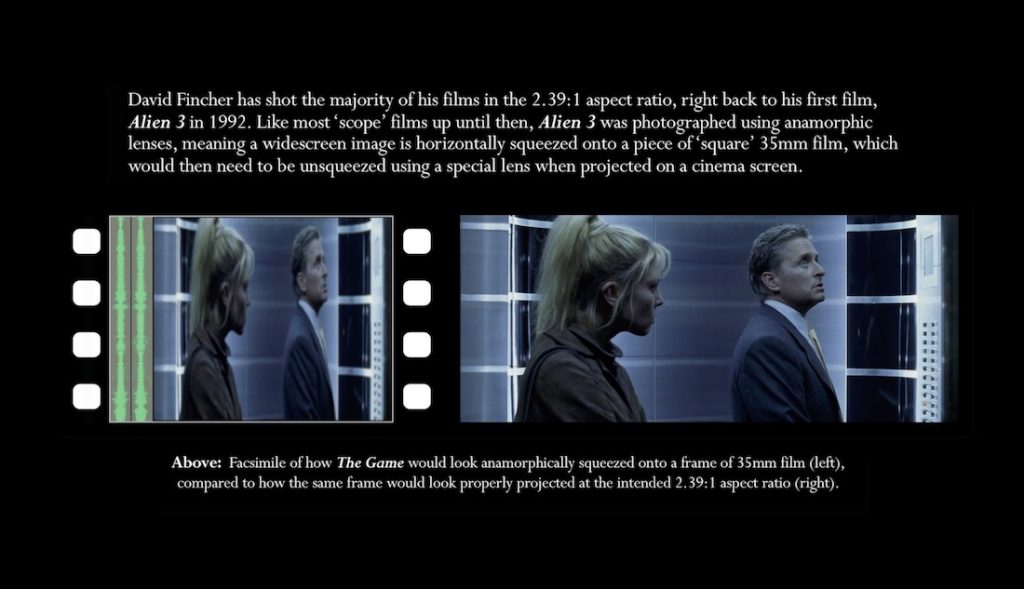
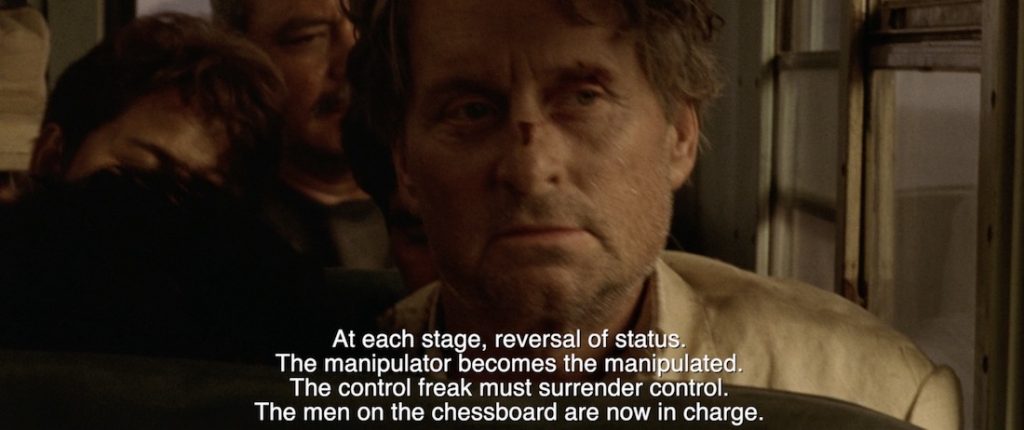
Not available to review, but the extras are as follows:
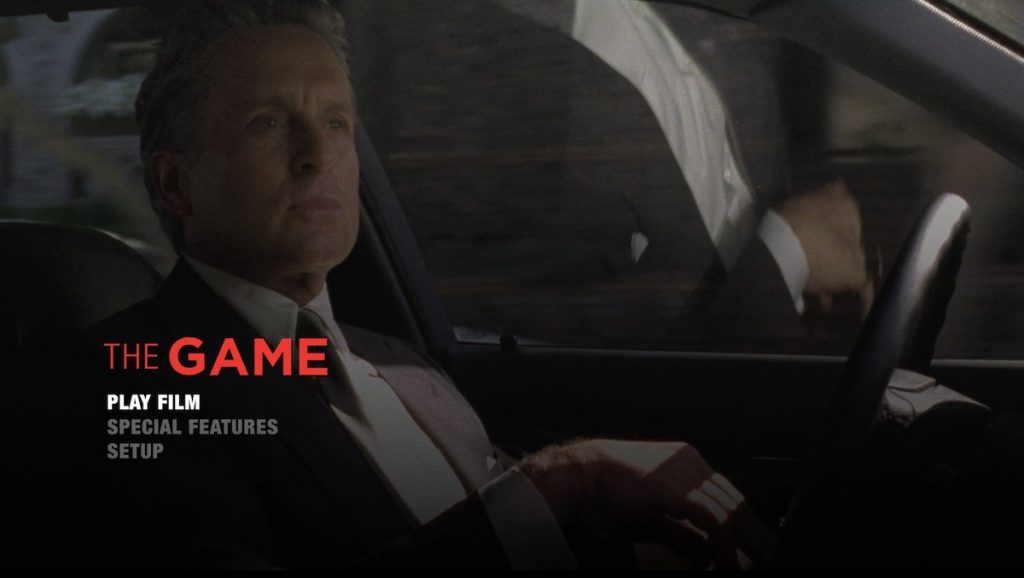

director: David Fincher.
writers: John Brancato & Michael Ferris.
starring: Michael Douglas, Sean Penn, James Rebhorn, Deborah Kara Unger, Peter Donat, Carroll Baker & Armin Mueller-Stahl.
